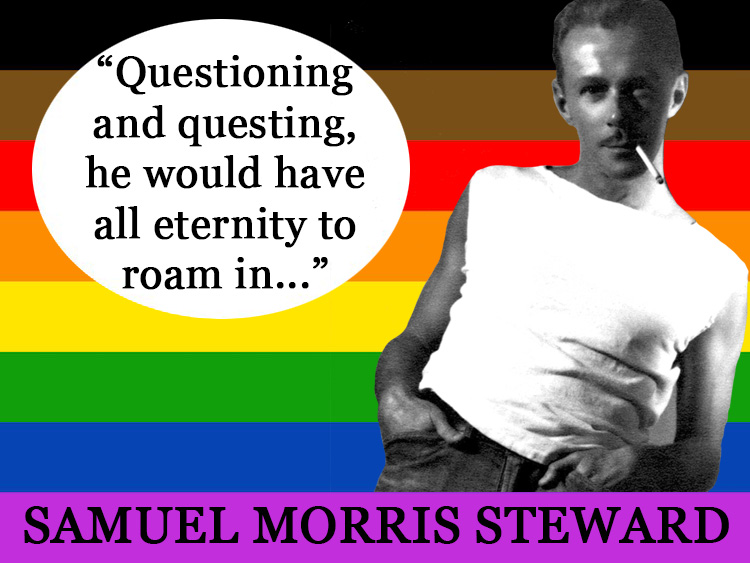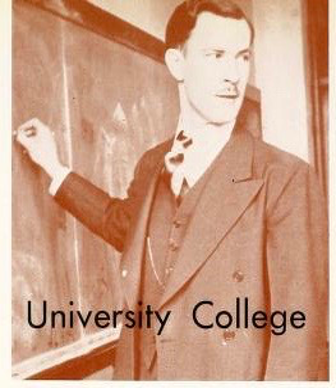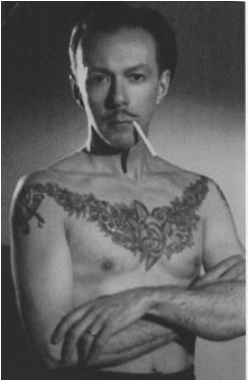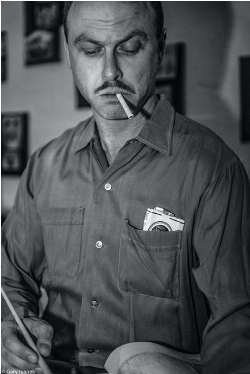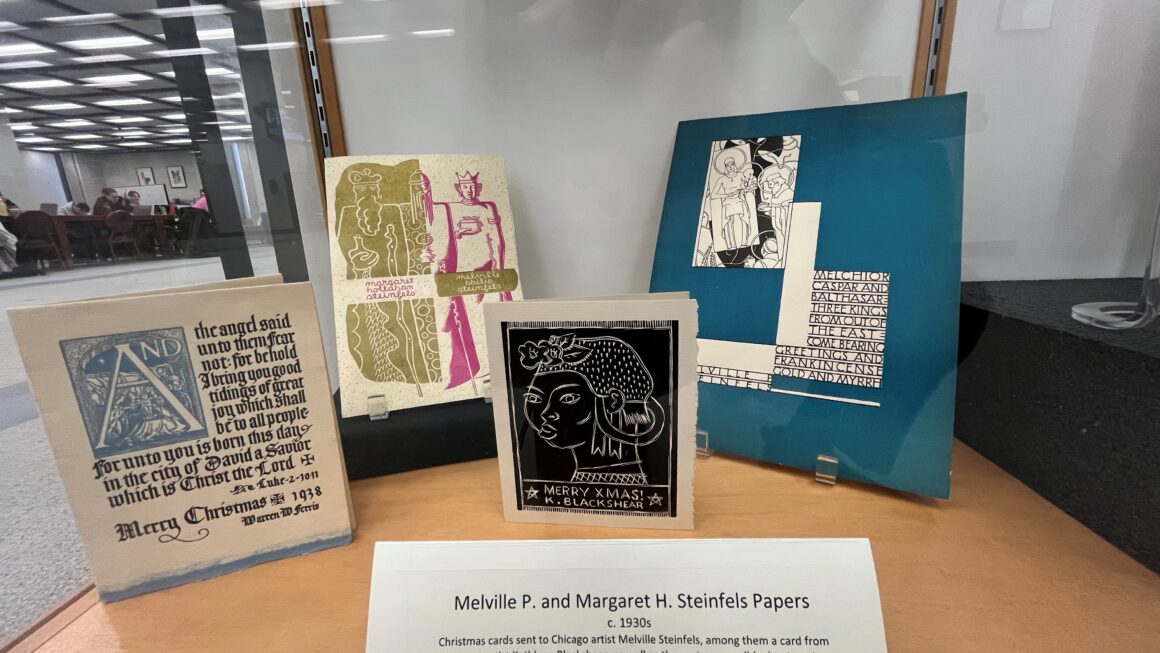By Charles Greene
As the library celebrates PRIDE Month we thought we would turn our focus to one of our own. From 1936 to 1946 Samuel Morris Steward served as a professor of English here at Loyola University Chicago. And although his is a name lost to our current campus community, Samuel Steward is definitely a part of Loyola’s history worth resurrecting.
The latest book published on Samuel Steward, The Lost Autobiography of Samuel Steward: Recollections of an Extraordinary Gay Life, gives us more than a glimpse into what was indeed an extraordinary life. The book, taken directly from Steward’s unpublished autobiography notes, details the three lives that Steward lived; that of mild mannered college professor, pioneering author of gay literature, and renegade tattoo artist. Steward’s accounts concerning these three facets of his life are generously seasoned with details of his many romantic and sexual encounters, giving us insight into how the life of a gay man was lived prior to Stonewall and the gay liberation movement. The book is filled with innumerable anecdotes that give testament to a bold and sometimes reckless approach to life that, above all else sought liberation. Steward presents his life in uncompromisingly honest prose that leave little to the imagination.
One of the most impressive elements of Samuel Steward’s life was the network of contacts he developed as a young man. Samuel Morris Steward hobnobbed with some of the most important literary, artistic, and social personages of the early twentieth century. He was a favored guest and mentee of Gertrude Stein and Alice Toklas in Paris, collaborated on gay and BDSM studies with the founding pioneer of modern sex and sexuality research, Alfred Kinsey, shared acquaintances with two Nobel Laureates, Andre Gide and Thomas Mann, and even boasts of being bed partner to Oscar Wilde’s former lover, Lord Alfred Douglas. Steward’s account of how he maneuvered his way into Lord Alfred’s bed is amusing, and telling of how Steward’s mind operated. He was not attracted to Lord Alfred, and was even somewhat repulsed by him physically — Lord Alfred being by then in his 60s. Steward simply wanted to sleep with the man who slept with Oscar Wilde. He was looking for a tangible connection between himself and one of his literary heroes.
Born and raised in Woodsfield, Ohio, Steward came to Chicago in 1936, accepting a professorship at Loyola University Chicago and, after a little time and effort, fell in love with the City.
Learning to love Chicago was a task, like learning to like martinis or getting used to pineapple and cottage cheese as a “salad.” There were many things about it that had to be forgotten or overlooked before love could develop.
Steward would eventually come to consider Chicago his home, more so than any other place he had lived. And when did the moment come when Steward would officially become a Chicagoan?
With my first holdup, of course… From an alley across La Salle Street, a guy emerged with a gun. He took my watch and wallet and told me not to move for five minutes… After that, I considered myself a True Native Chicagoan.
Samuel Steward would leave Loyola in 1946, to write entries for World Book Encyclopedia and later, rival Compton’s Encyclopedia over the next two years. That work eventually dried up however, and in need of employment he talked his way into a teaching gig at DePaul University. Steward does not go into an excessive amount of detail regarding his time at either DePaul or Loyola, but the space that he does devote to the two Chicago north side universities is, like everything else in the autobiography, amusing and well worth reading — particularly to those of us who are connected to one or the other of these institutions. After 20 years teaching between Loyola University Chicago and DePaul University, Steward had had enough of the higher education grind: “Might it not be time to be considering a move to some other place? Or another occupation?”
During the last 2 years of his tenure at DePaul, Steward, with no prior background, decided to learn to become a tattoo artist. After trying to learn via a correspondence course — and finding it completely useless — he decided to go to Milwaukee to visit a master tattooist and simply paid him a nominal amount to learn the trade. After learning the ropes and after a bit of practice — on himself, of course — he began operating as a professional tattoo artist in the South Loop. Steward first plied his trade while still teaching at DePaul: “This curious double life went on for two years, cautiously. I wanted to be sure that I would be able to earn a living with tattooing. For two years, then, I got two salaries—and profited.” Eventually, he would leave DePaul altogether working solely as a tattoo artist. He opened his own shop on State Street where he serviced many of Chicago’s “tough boys” and the many Navy sailors who embarked on the city during leave. Eventually, many years later, he would move to San Francisco becoming the official tattooist for the Hell’s Angels bikers gang.
There are tons of interesting facts regarding Samuel Steward I could provide in this brief blog entry. However, to give an overview of Steward’s life is to miss the point of it. With Samuel Steward, the devil was always in the details. It is not enough to say that Samuel Steward was a college professor, or an author, or a tattoo artist, or even that he was friends with the likes of literary and cultural legends. And it is not enough to point out that he was an important figure in the evolution of gay and LGBTQ rights (did I mention that he was posthumously inducted into the Leather Hall of Fame in 2012 or honored as part of San Francisco South of Market Leather History Alley?). What makes Samuel Morris Steward worth reading about is not the broad strokes of his life, but the honesty and freedom with which he lived that life. It’s refreshing to know that someone like Steward was part of the life of our campus at one time. And it’s sad that his existence as part of our history has been shuttered to us over these many years. So, during this PRIDE Month let’s take a moment to rediscover Samuel Steward, and take pride in one of our own.
